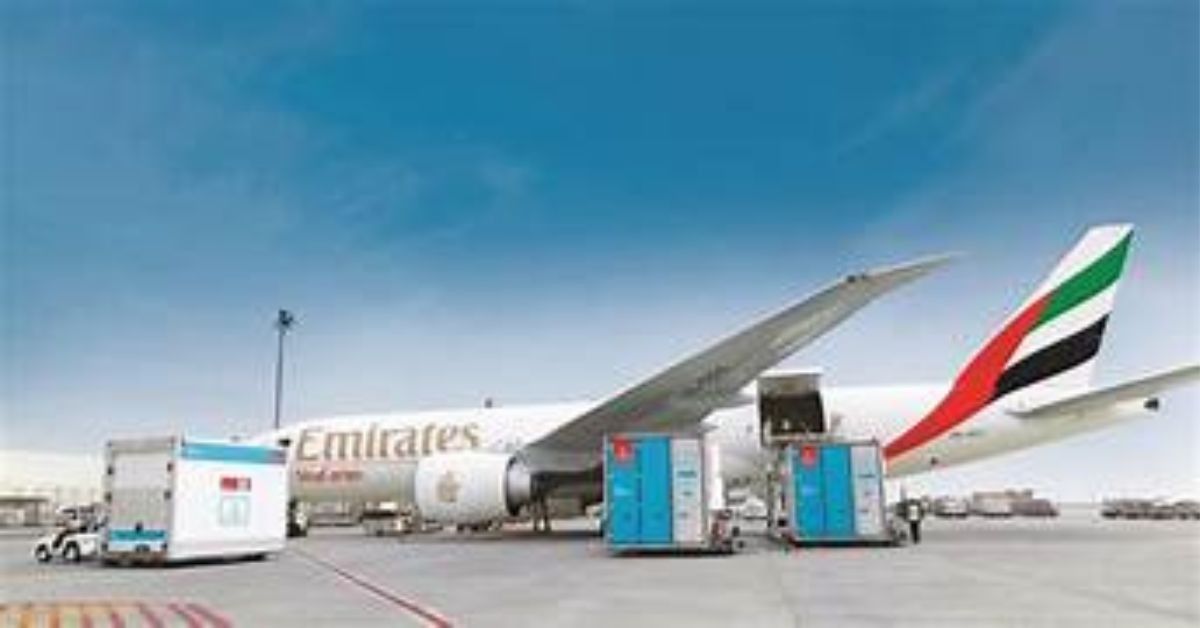Emirates recorded an increase in cargo volumes during the first half of the year, supported by expanded fleet capacity and rising global airfreight demand, though the airline faced continued pressure on cargo yields.
The carrier’s cargo arm, Emirates SkyCargo, transported 1.25 million tonnes of freight between April and September — a 4% rise compared with the same period last year. The growth was driven largely by the addition of three new Boeing 777 freighters, two of which joined the fleet in May. According to Planespotters.net, Emirates now operates 11 Boeing 777 freighters and supplements its network with wet-leased Boeing 747 freighters.
Beyond dedicated freighters, the airline also benefited from additional bellyhold cargo capacity as passenger services continued to expand. Emirates reported a 5% year-on-year increase in total capacity, reaching 31.3 billion available tonne-kilometres in the first half.
The broader air cargo market has shown signs of recovery, with IATA data indicating global airfreight traffic grew 3.2% year-on-year during the first nine months of 2025.
Despite steady customer demand for Emirates SkyCargo’s specialized logistics solutions and extensive network — which spanned 153 airports as of September — the carrier noted a 6% decline in yields. The drop was attributed to softening demand in select market segments and ongoing tariff-related uncertainties.
Meanwhile, dnata, Emirates Group’s ground handling and logistics subsidiary, also reported positive momentum. The company handled 1.6 million tonnes of cargo in the first half of the year, marking a 3% increase from the same period in 2024.










